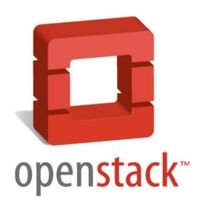 The second release of the OpenStack open source cloud platform is code-named Bexar (pronounced with a silent X), for the county containing San Antonio, Texas, where founder Rackspace has its offices .
The second release of the OpenStack open source cloud platform is code-named Bexar (pronounced with a silent X), for the county containing San Antonio, Texas, where founder Rackspace has its offices .
The new version will feature both support for Ipv6 and unlimited file sizes. The platform, which launched with technology from NASA (which abandoned efforts to build its own proprietary system), may be the most important open source project of this year.

The alternative is market leader Amazon and its EC2 cloud. Open source Eucalyptus, run by mySQL founder Mickos Martens, is EC2-compatible.
Why does this matter to you? Because increasingly corporate infrastructures are moving to clouds. Instead of being Internet Service Providers or Application Service Providers, Web hosts are becoming Infrastructure As A Service (IaaS). A cloud system like EC2 or OpenStack becomes the operating system in this new world – and do you want that world to be like that of Microsoft Windows or Linux.
A truly open cloud platform provides a far more competitive future than one based on anything proprietary, so even though Amazon remains the far-and-away leader in the IaaS category (Google has yet to offer a truly direct competitor) other Web hosts are gravitating rapidly toward OpenStack. Cloudscaling has announced a commercial deployment based on OpenStack and so has Internap. Rackspace itself has announced its first European cloud.
More important it's becoming increasingly clear that open source as a movement “groks” what is at stake here. Thus the next version of Ubuntu, dubbed Natty Narwhal, will support OpenStack alongside Eucalyptus. While Dell is currently shipping only a Ubuntu with Eucalyptus support, it too wants to support OpenStack.
Cloud software remains a competitive world, even the open source side of it, with offerings like Red Hat's DeltaCloud, an API now in the Apache incubabor, and Cloud.com's Cloudstack both remaining viable.
But it's OpenStack that seems to have the momentum and no matter what cloud stack you're running it's something you need to keep an eye on.








